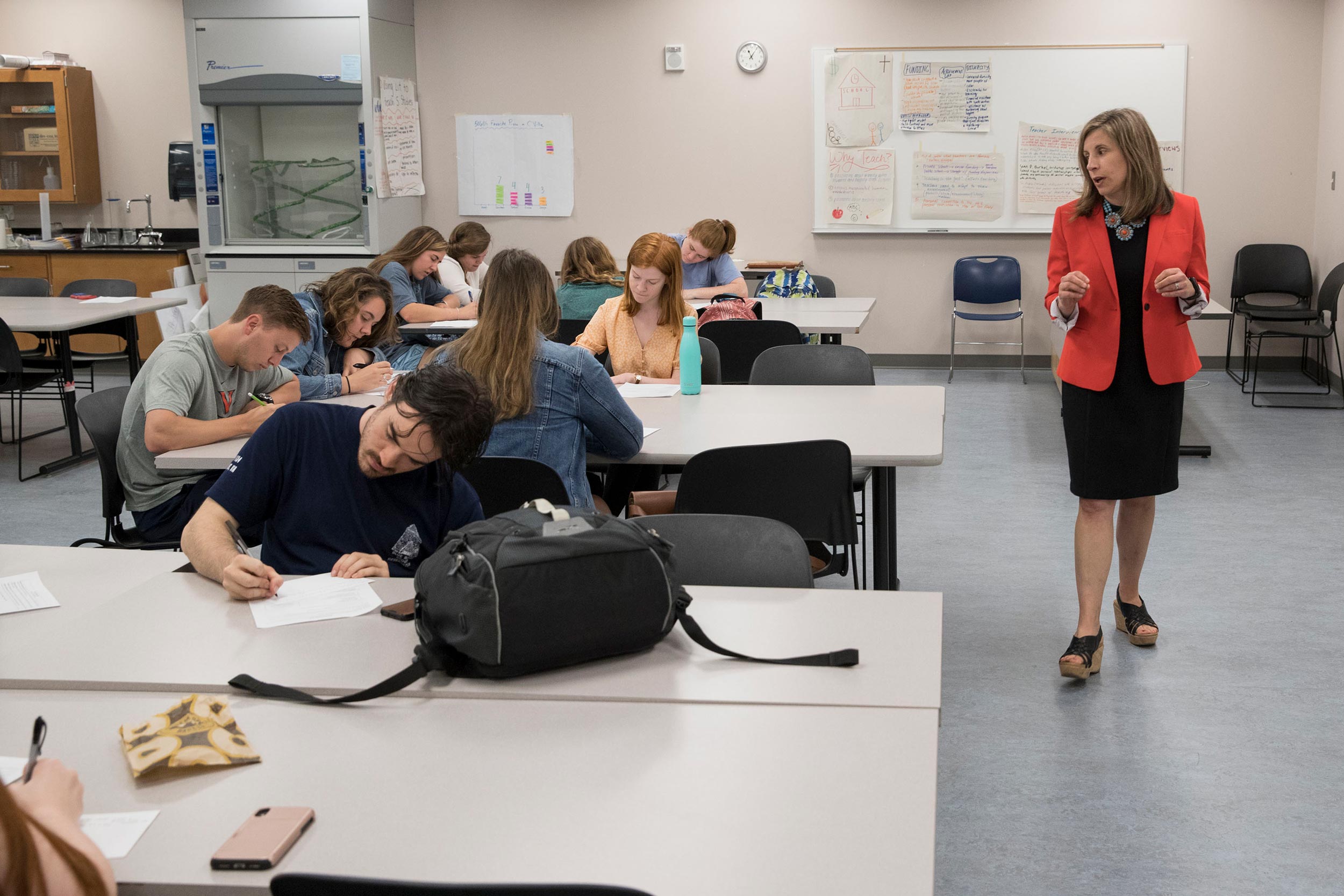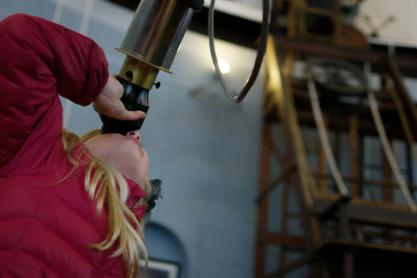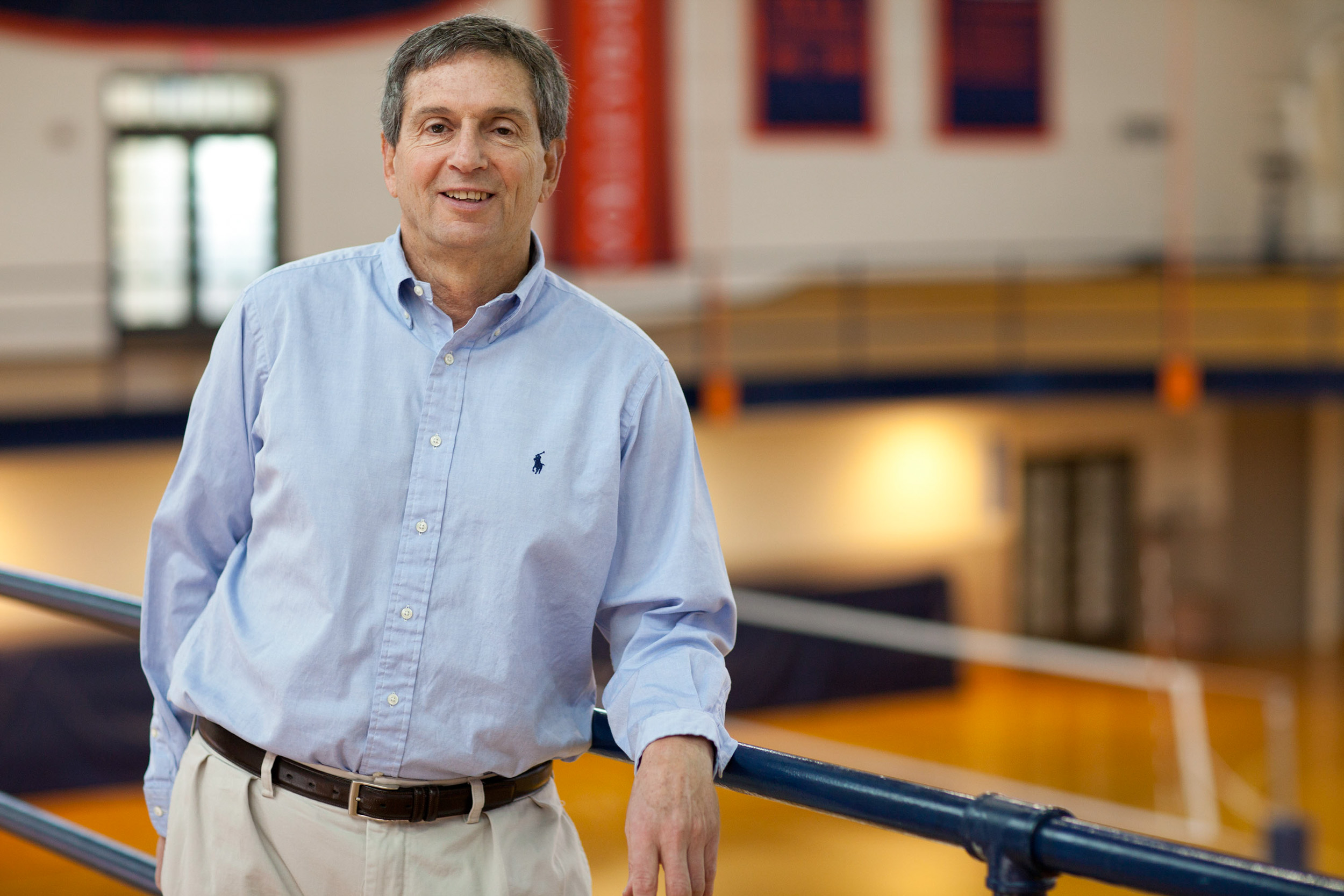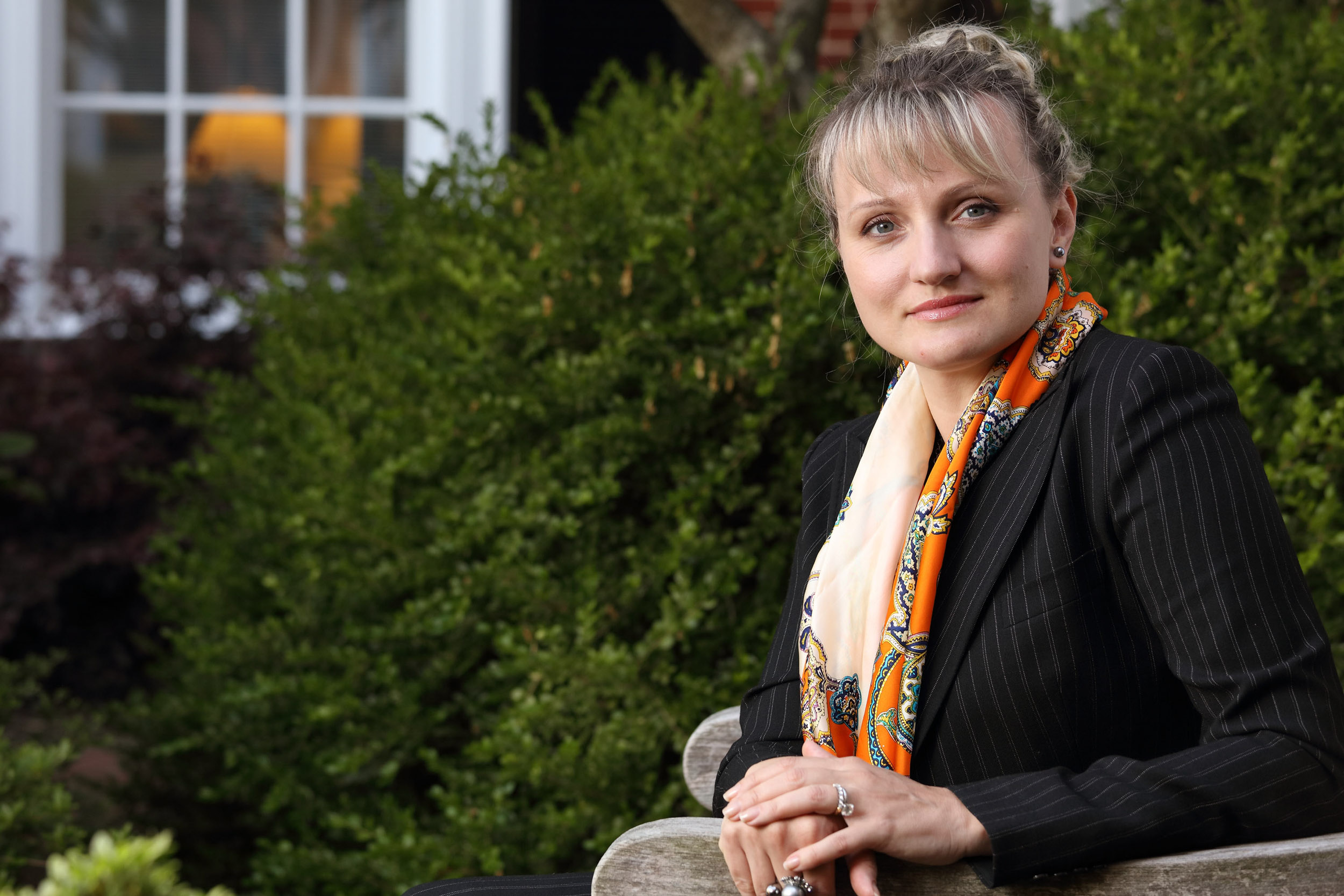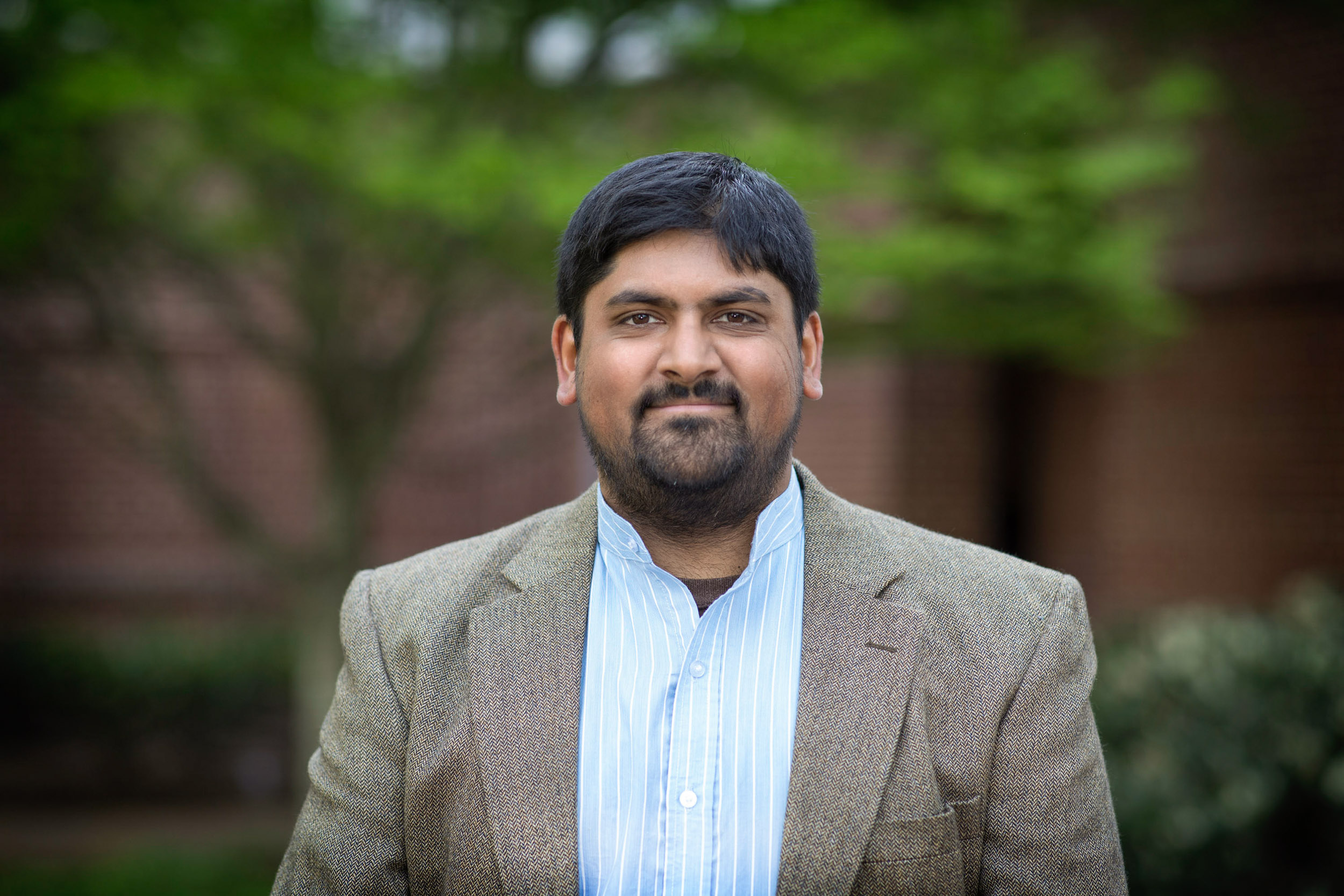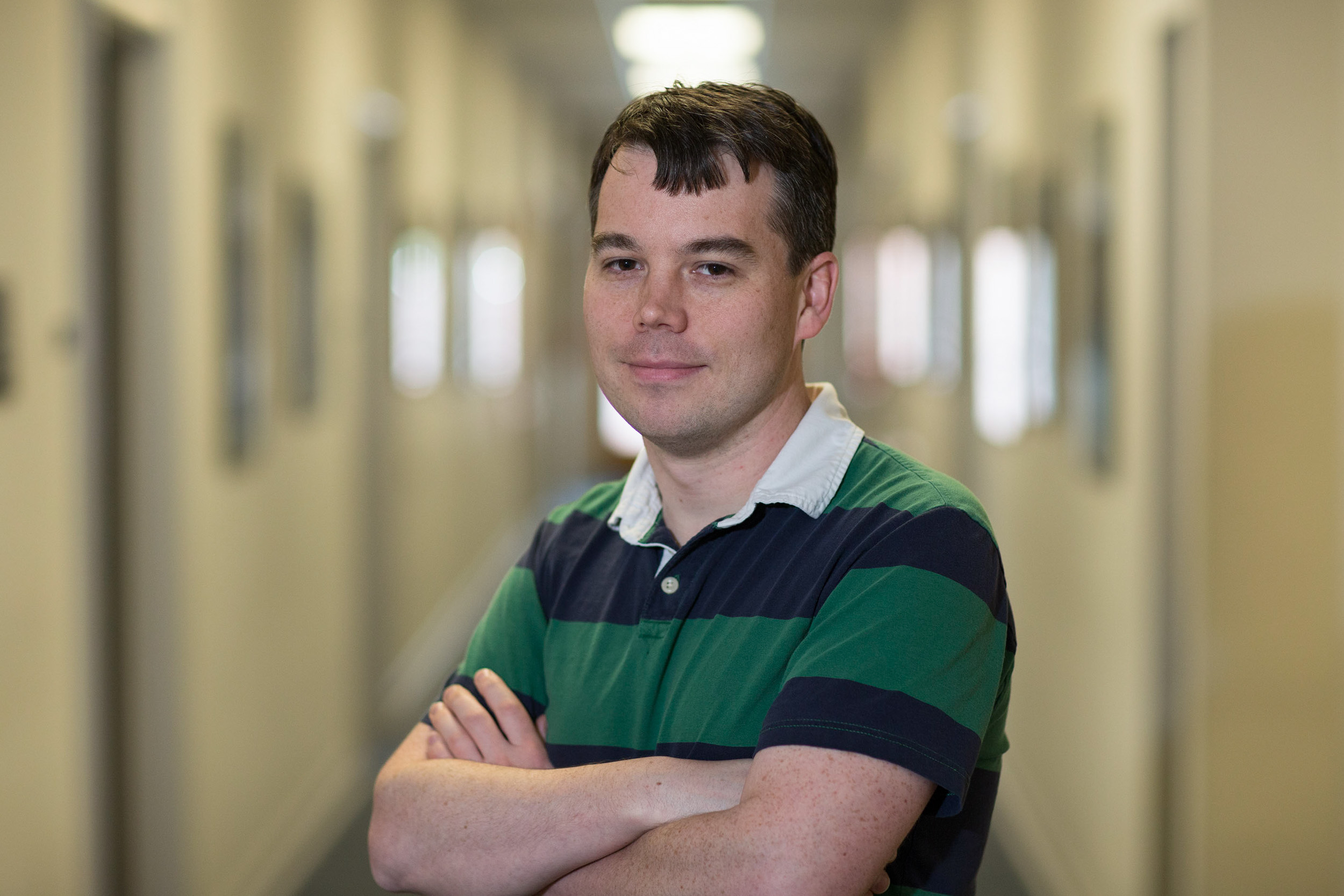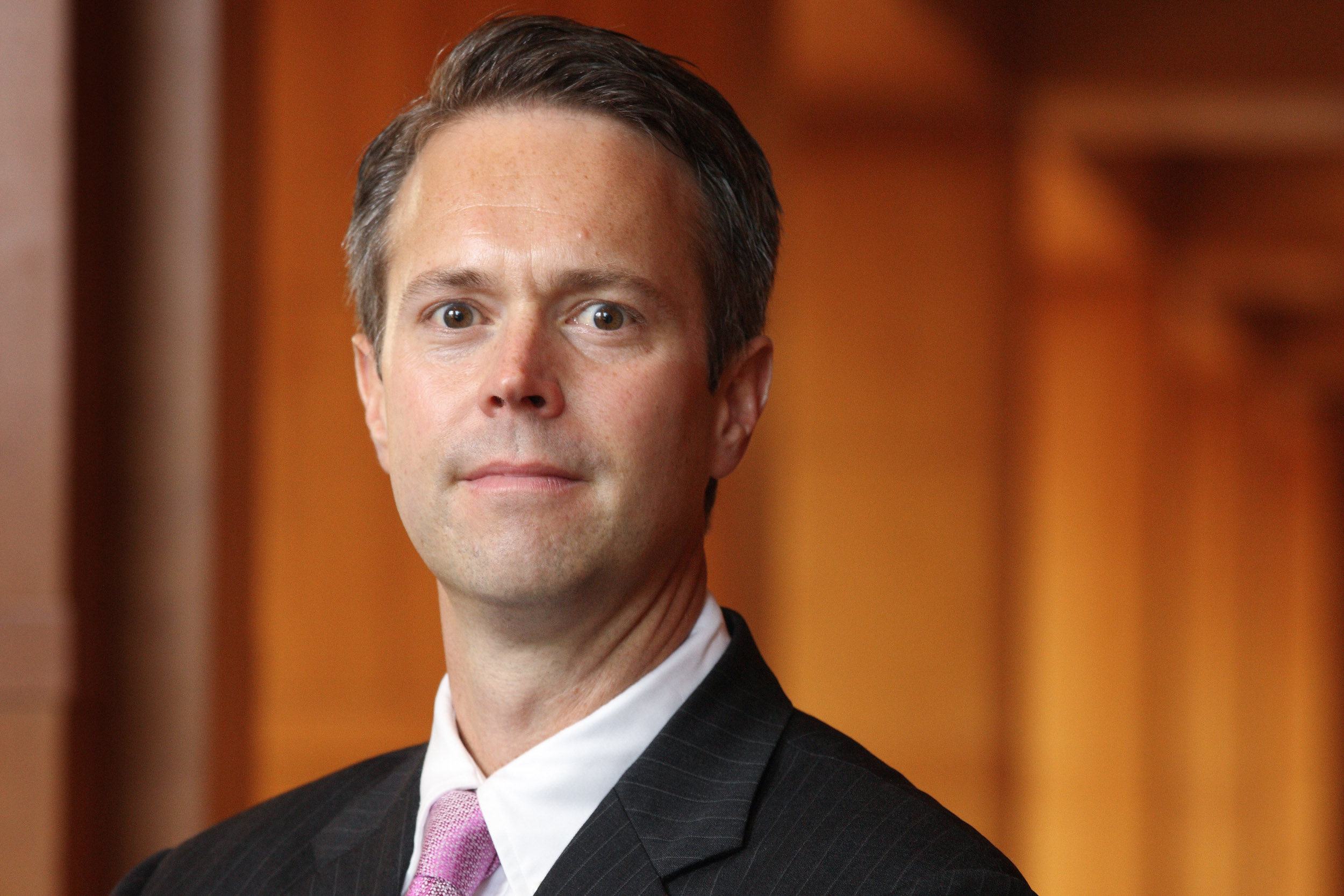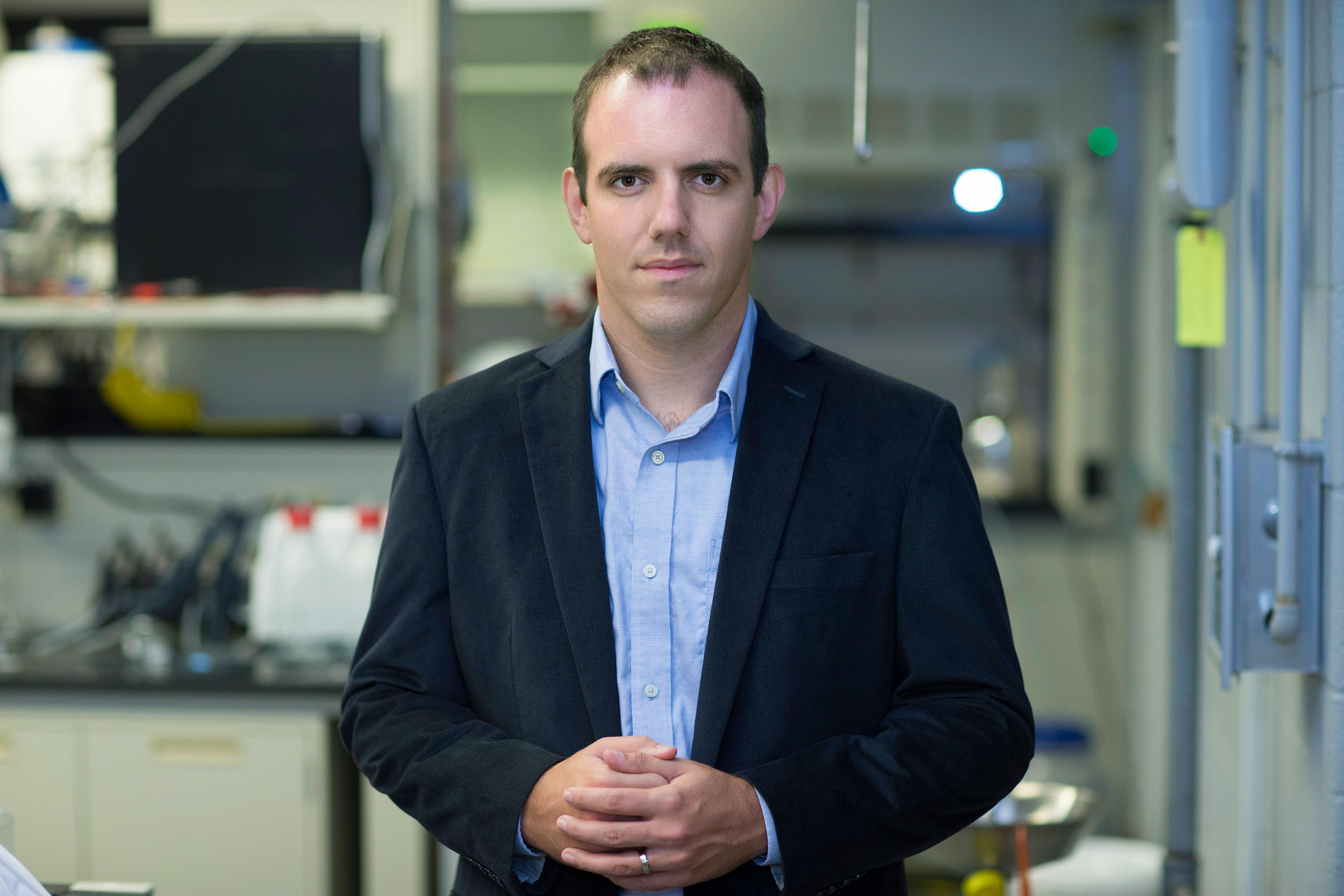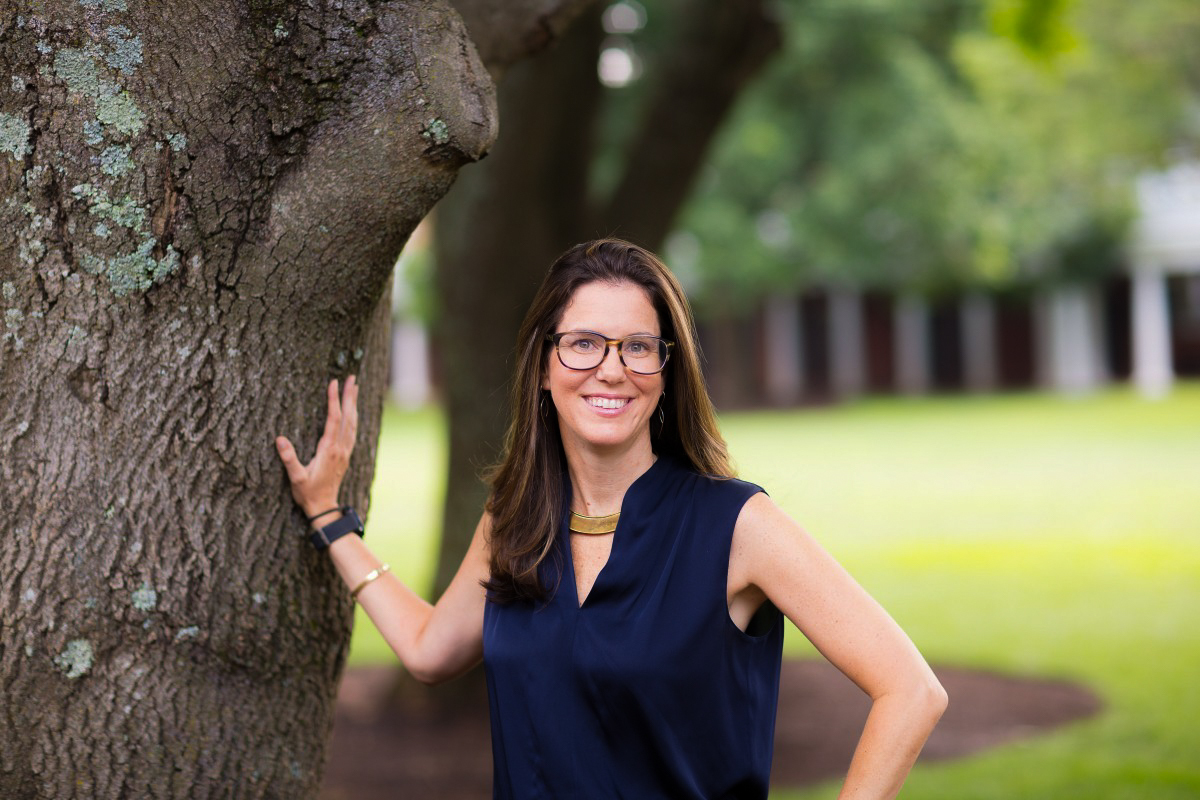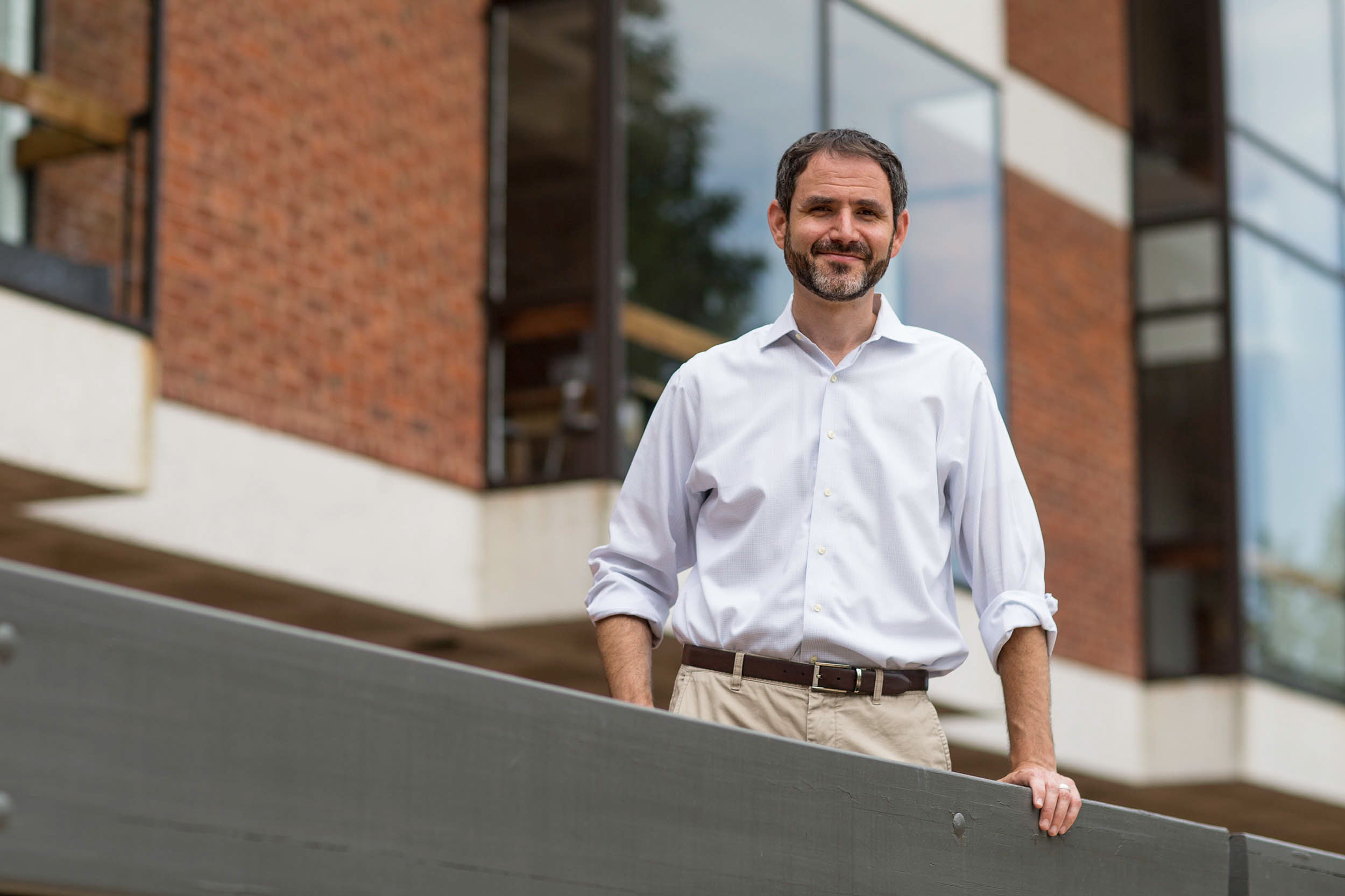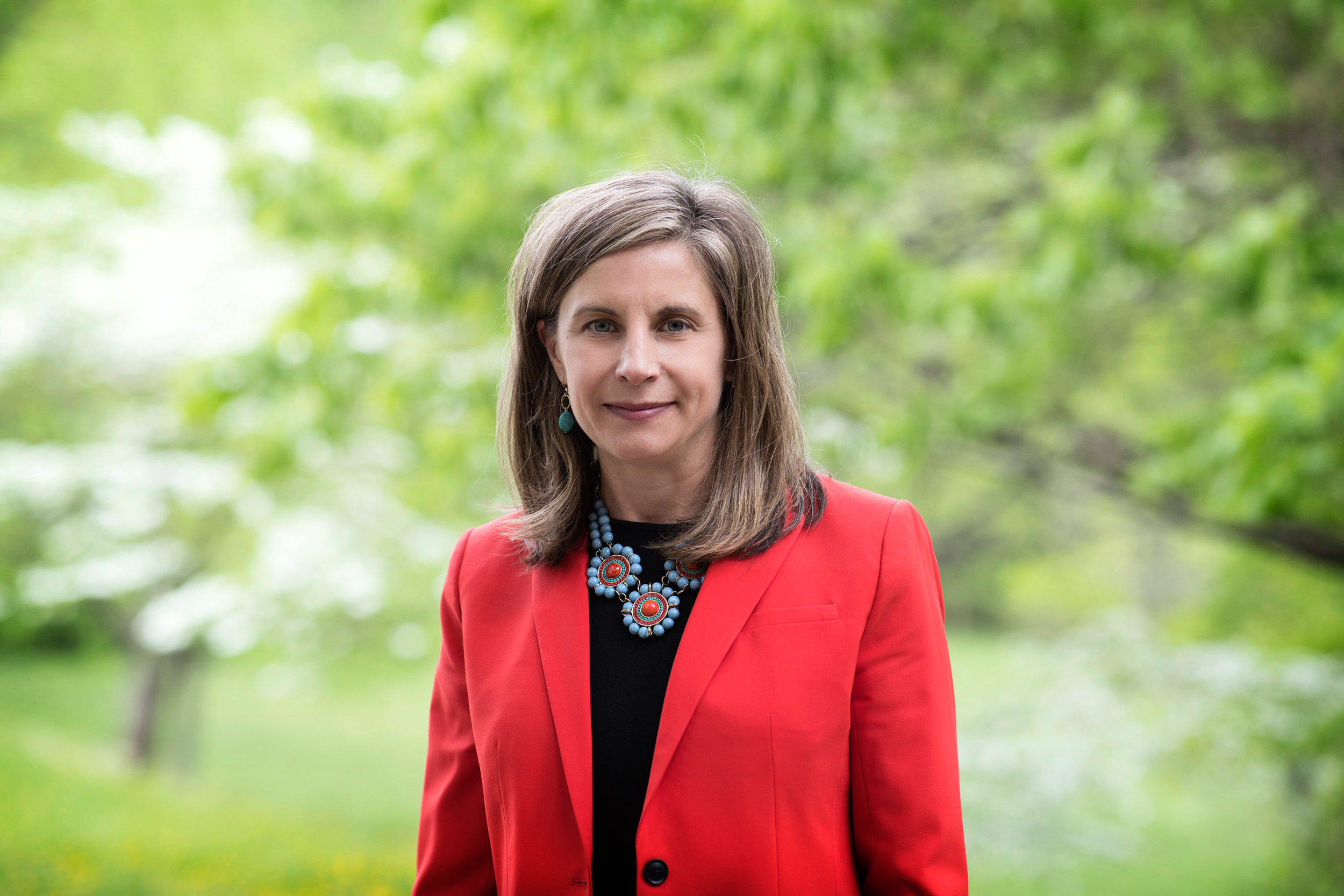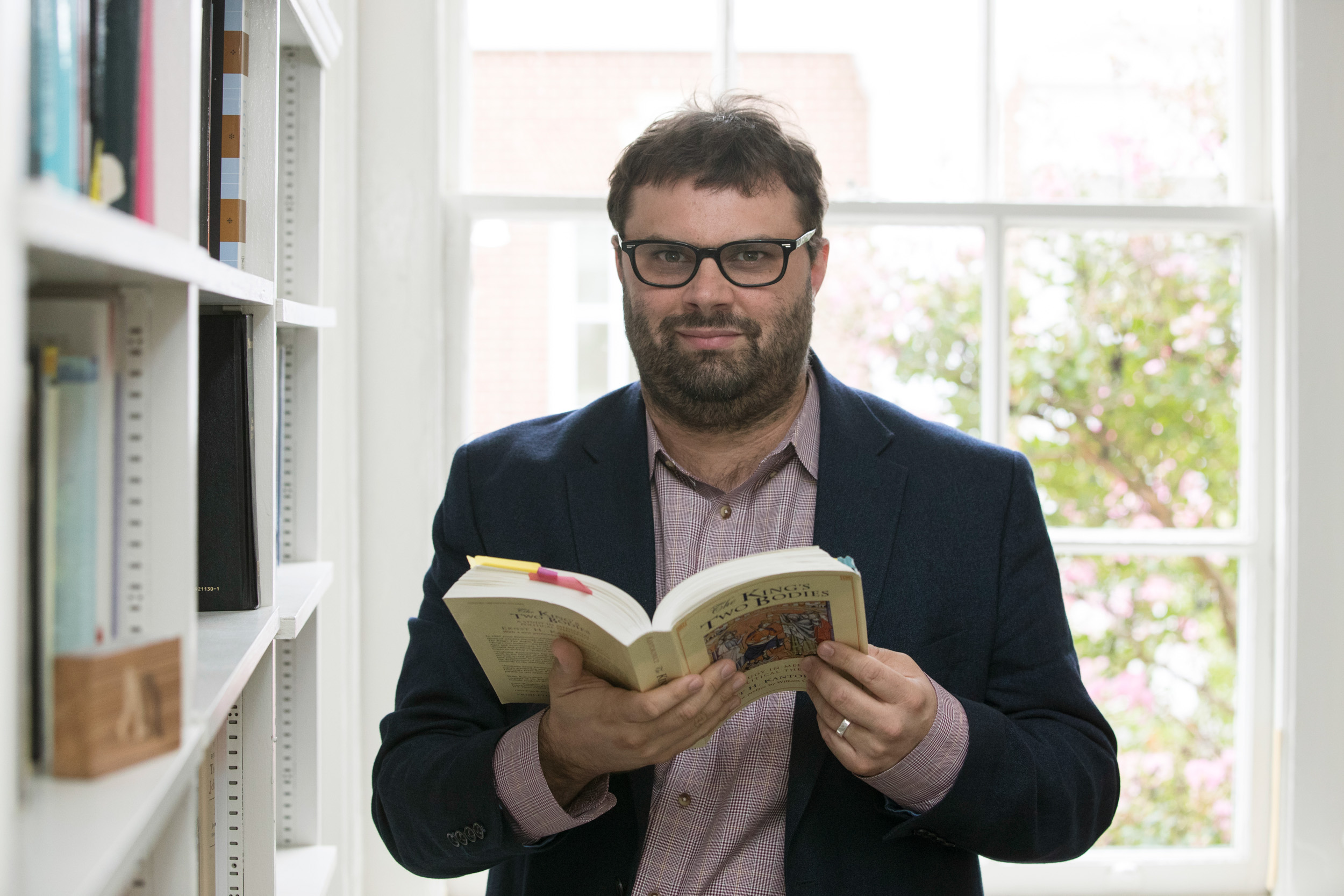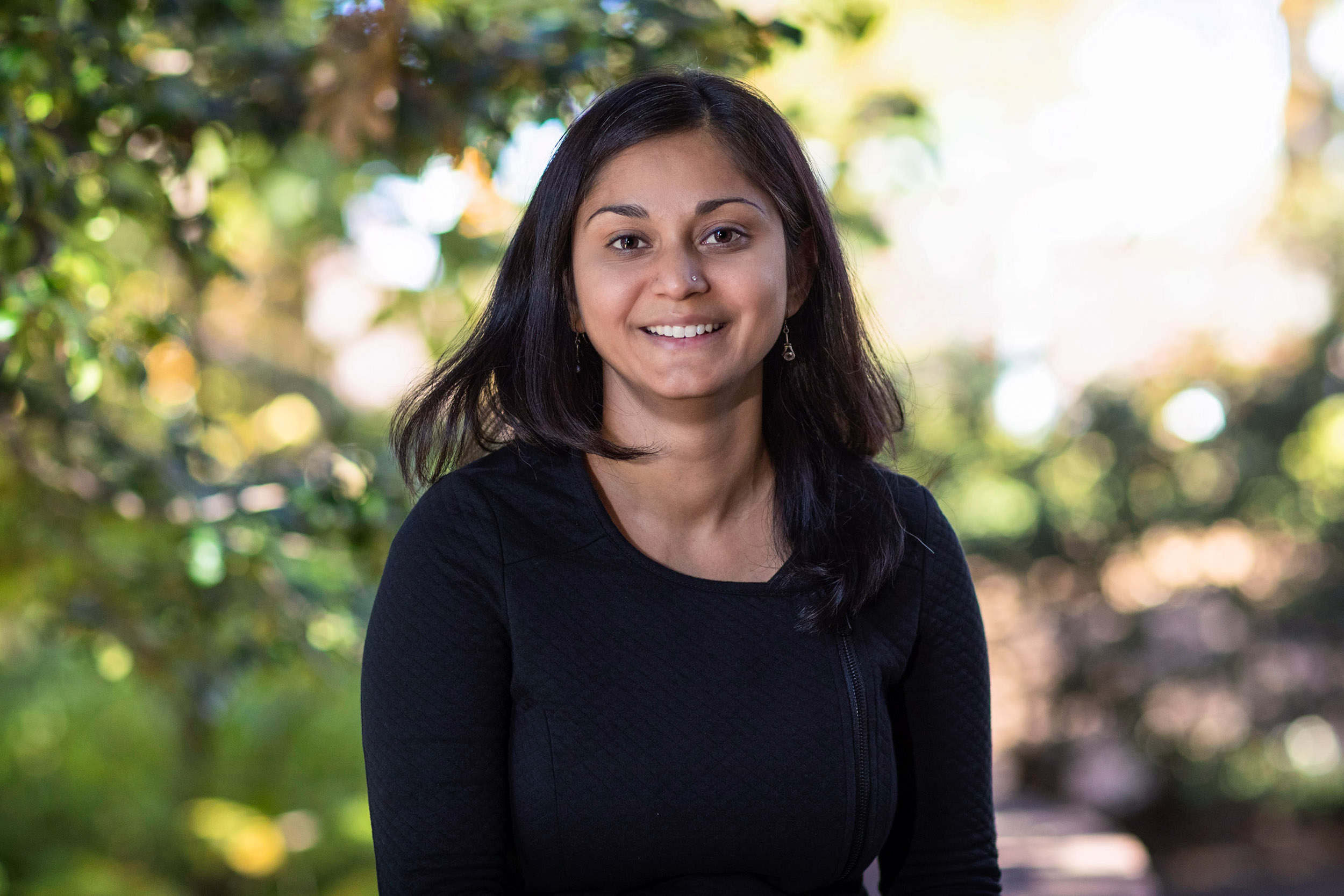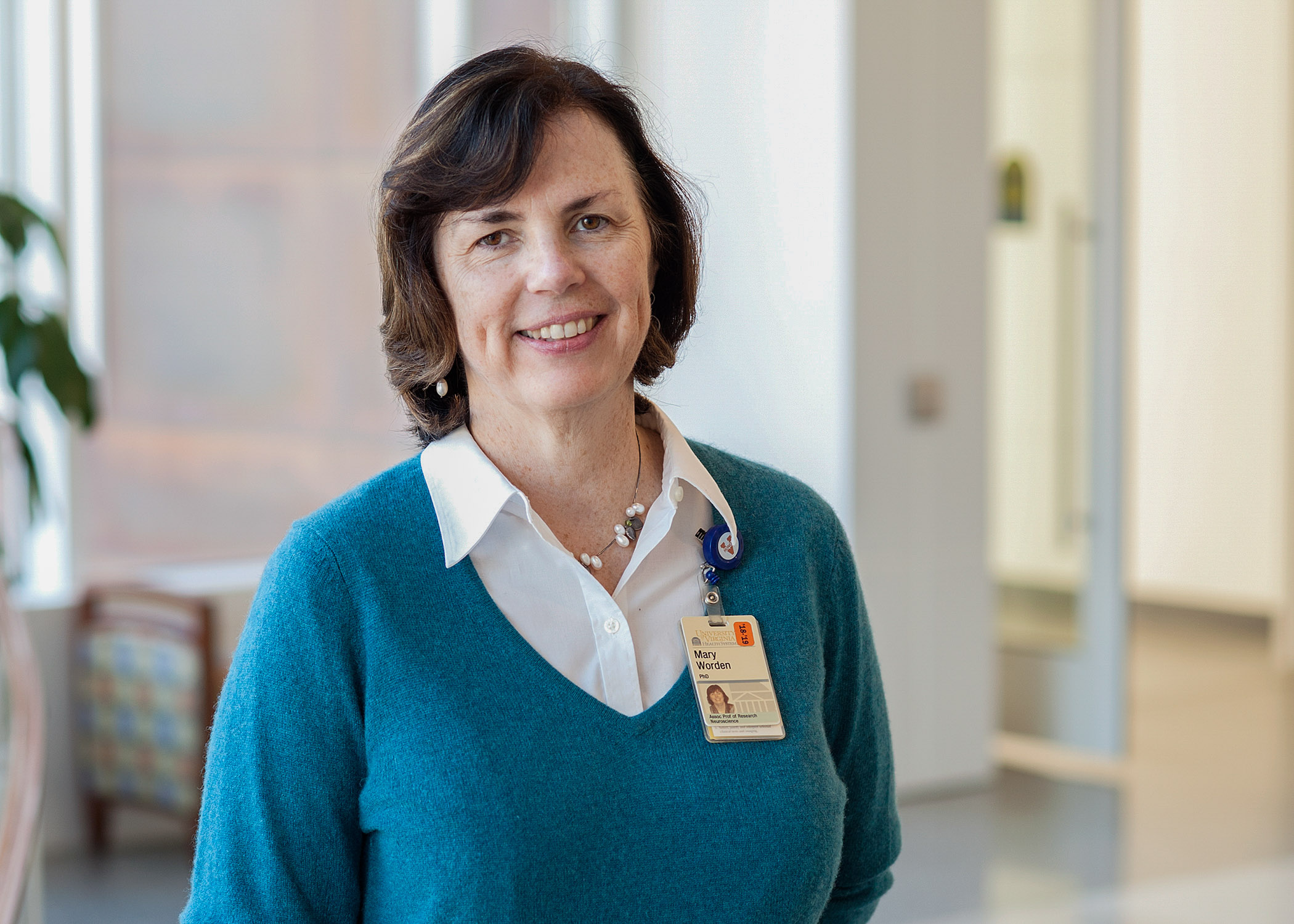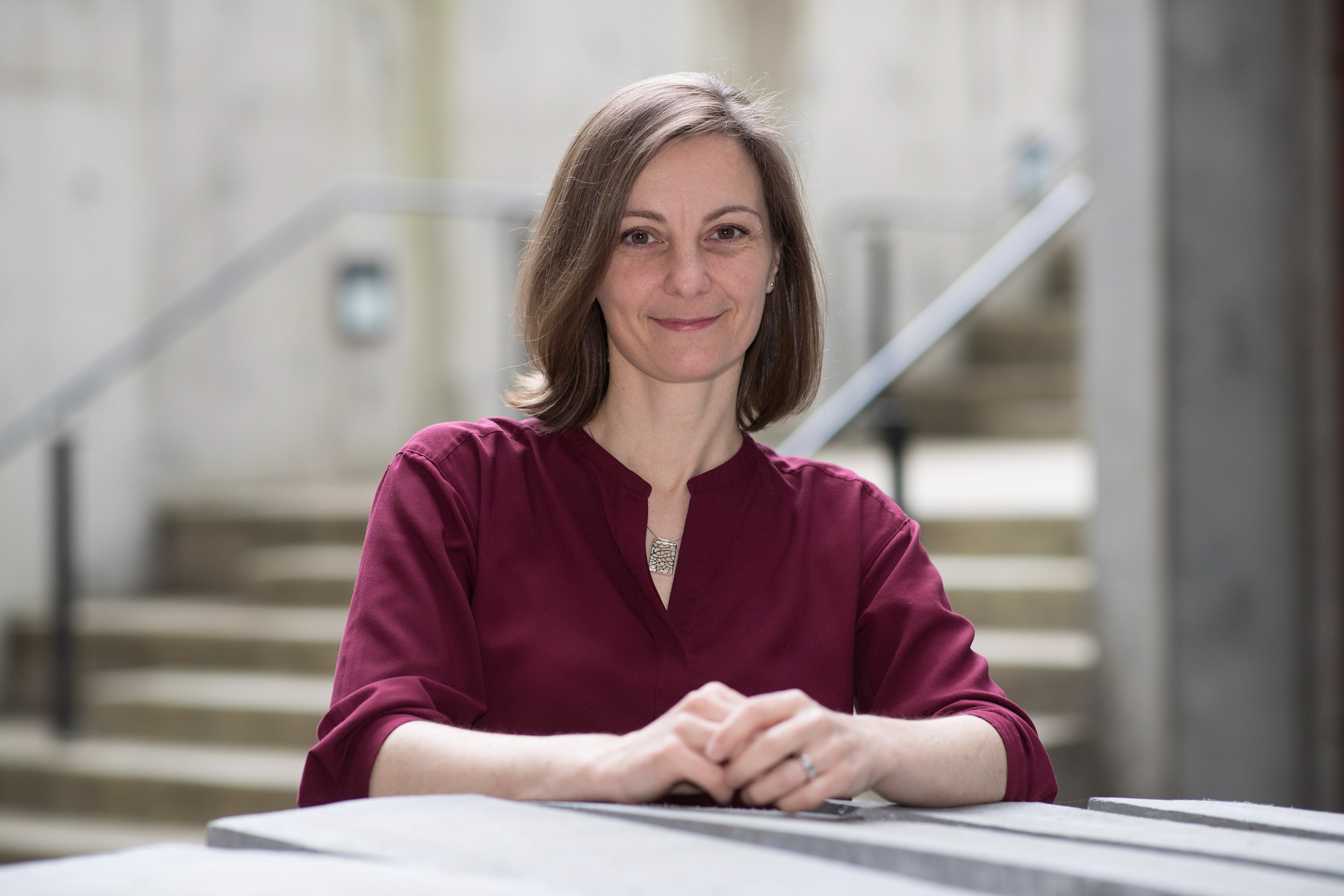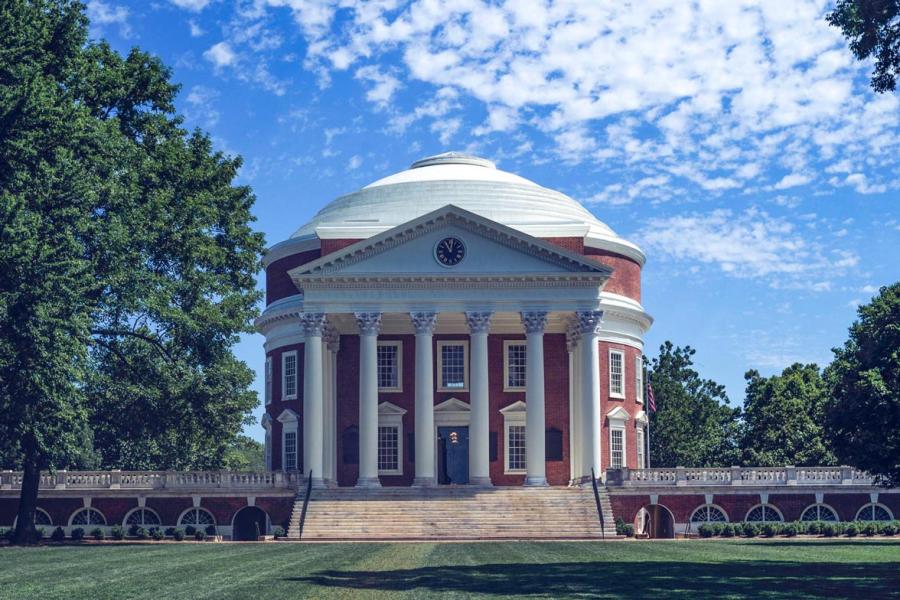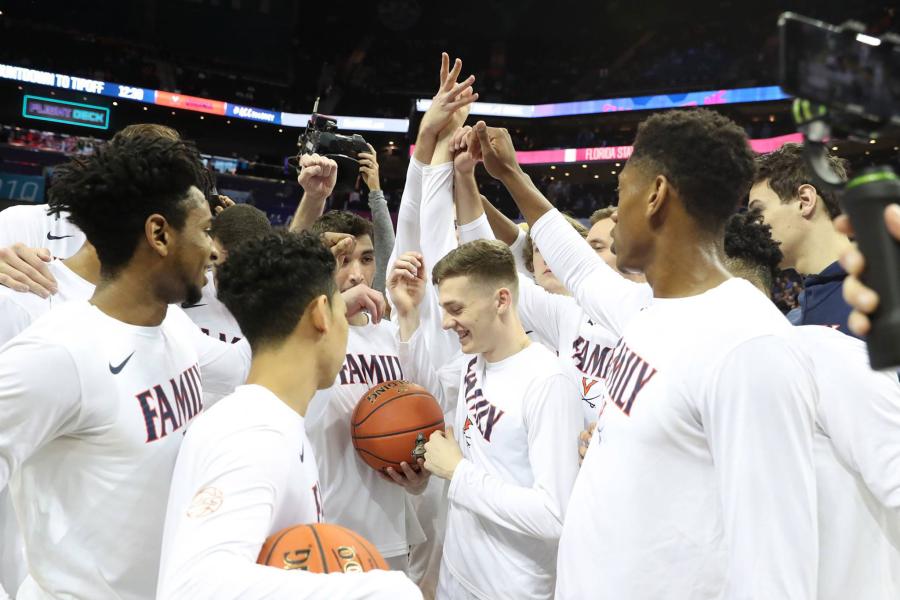Faculty members at the University of Virginia seek to inspire and challenge the next generation, no matter what the discipline. At the same time, most of their students come to class motivated to change the world for the better.
So how do professors help prepare students to find their paths forward?
UVA’s best teachers, recognized Wednesday at a dinner, strive to create “a positive environment for learning,” as kinesiology professor Arthur Weltman put it – classroom environments where students can connect with each other and feel comfortable enough to be wrong. Being accessible is key; professors keep their doors open to students, extending their influence beyond the classroom. They employ both “the art and science” of teaching, as neuroscientist Mary Kate Worden said.
Each year, deans, department chairs and colleagues take the opportunity to recognize excellent teachers through a set of awards, sponsored by the Office of the Executive Vice President and Provost. Included in the nomination materials with testimonials from colleagues and students is each faculty member’s unique teaching statement. There, they detail some of their thoughts for nurturing the learning that will benefit students for the rest of their lives.
